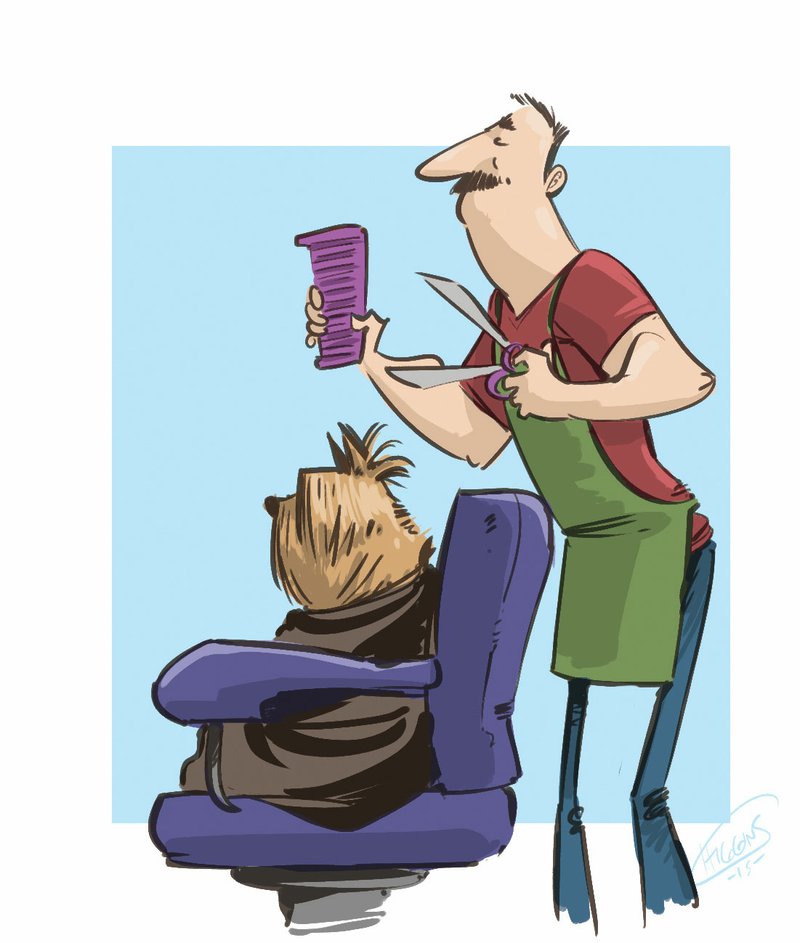I have a great dog groomer that I'm really happy with. I recently noticed a new groomer near the one I use. The storefront looks less than desirable. Made me wonder what kind of education and/or training is required? Who or what agency regulates them? Is there any recourse if you have a bad experience or your animal is hurt, or worse?
The pet grooming industry is currently unregulated in Arkansas, which means there are no laws requiring training or licensing for the people who bathe and groom pet animals, says Cara Tharp of the Arkansas Veterinary Medical Licensing Board.
Since no government agency licenses or oversees the pet-grooming industry, there's no agency where pet owners can lodge complaints if they feel their dog was mistreated or simply received a bad haircut, Tharp says. She suggests consumers might be able to find some relief at their local Better Business Bureau.
Arkansas isn't unique in its lack of oversight. The Humane Society of the United States says on its website, hsus.org, that "some groomers are registered or certified by a grooming school or professional association, but no government agency regulates or licenses pet groomers." An Internet search revealed that Connecticut and Colorado have established some guidelines for pet-grooming businesses.
Groomers typically develop their skills on the job by working with other professionals or attending workshops offered by professional organization such as the National Dog Groomer Association and the International Association of Canine Cosmetologists. In Arkansas, aspiring groomers also will soon have the option of attending the Arkansas Pet Grooming School in Wynne. Professional groomer Mary Ann Berry is reopening the school she founded in 2006 and operated until 2012, when she took a hiatus because of health problems.
Berry says she opened the school originally because she wanted to fill the need for training in her industry. While no law requires a person to be certified or licensed before opening a grooming facility, being able to show customers proof of education -- whether it's from Berry's school or a professional organization -- boosts credibility and gives customers confidence. She says she wishes there was more oversight of pet grooming: "I feel like you'd have a lot less complications."
Students at Berry's school must complete 480 hours (onsite and online at arkansaspetgroomingschool.com) of training in which they learn what they need to run a grooming business, including bathing, grooming and stylist skills. They also learn how to apply for a local business license, keep financial records, interact with clients (human and animal) and market their services. From 2006 to 2012, the school was licensed by the Arkansas State Board of Private Career Education, which oversees businesses that teach trades or skills. A pending license application for the school's current incarnation will be considered at the Feb. 25 meeting of the board, says Sara Hill, a board compliance specialist.
When choosing or evaluating a grooming facility, Berry offers some tips for pet owners:
• "The first thing to do is go in and look at the facility to see if it's being kept clean." Sanitation is critical to animal safety, Berry says. Cages, tubs and showers need to be sanitized after each animal. Also note how a place smells. A clean facility will not stink.
• While in the facility, ask to see where the pets are washed and dried. If the business uses drying cages, make sure they are supervised and have working timers. However, Berry says, she doesn't dry animals in cages to which dryers have been secured because of the possibility of an animal accidentally overheating. She prefers using handheld dryers that work by using a high level of air force to quickly "blow the water off the dog. They can dry a German shepherd in 15 to 20 minutes."
• Always ask other pet owners about their experiences with the grooming facilities under consideration.
• Talk to groomers face to face. Ask questions about their procedures, experience, training and certifications. When talking to an individual groomer, ask if he prefers specific types or breeds of dogs, then tell him about your dog. "Watch the face," Berry says. "If the groomer doesn't look interested -- and you can tell if he is -- then he probably won't do a very good job."
Family on 01/13/2016

